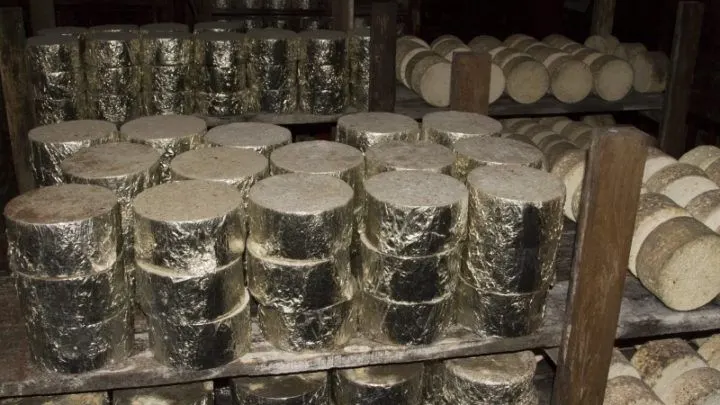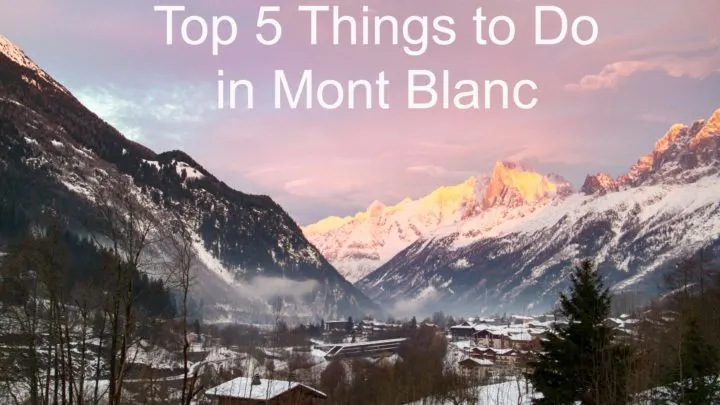Planning a trip to France? One important factor is where will you stay. Have you ever heard of a gîte? It’s a rental unit in France that is often very traditional. Find out all about French gîtes from our guest Phoebe Thomas on this podcast. Her gite, Lou Messugo, is perfectly situated in the Cote d’Azur.
Or you can always subscribe to one of these:
Apple Podcasts
Google Podcasts
Spotify
Amazon Music

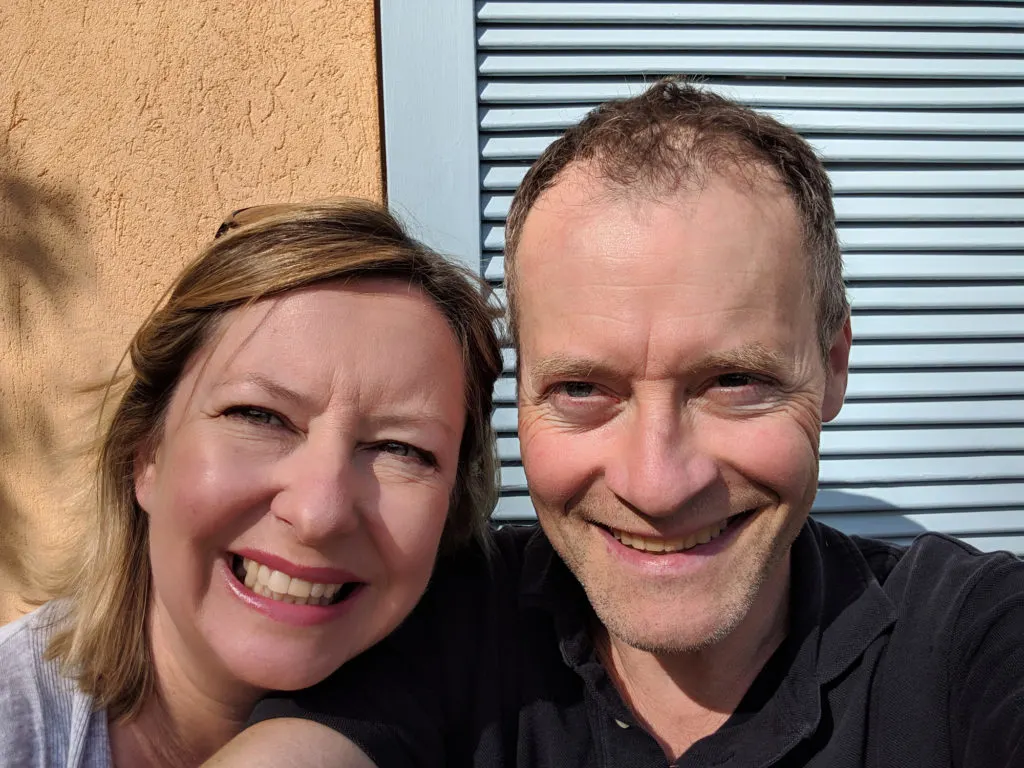
Show Notes
1:33 – Different types of gites
9:19 – Interacting with guests
22:01 – Balancing travel with running a gite
29:31 – Cutting out the middleman, deal directly with the owner
34:12 – Local cuisine of the area
46:20 – Best time to visit the Cote d’Azure
51:58 – Local festivals and events
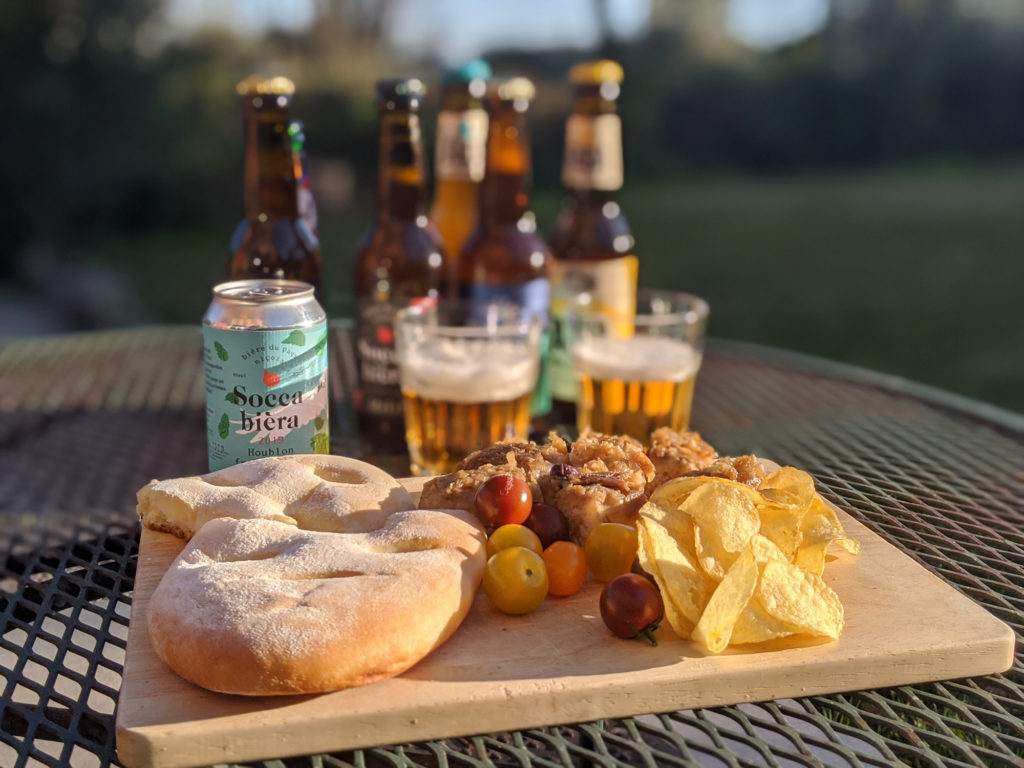
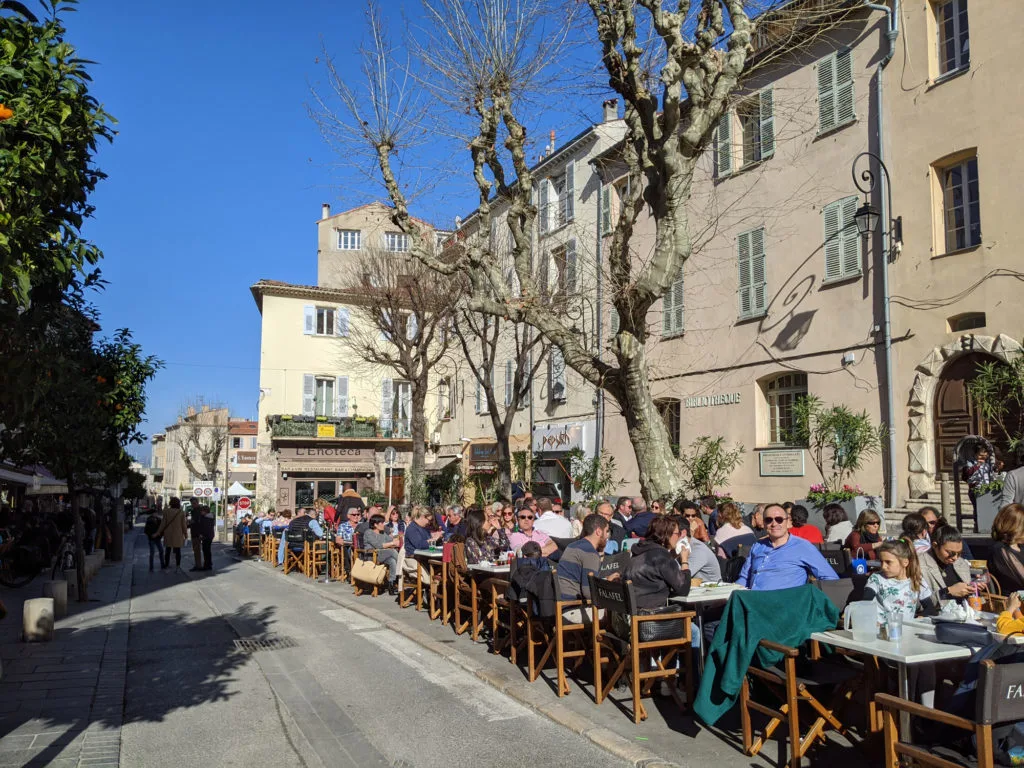
Worth Mentioning
Phoebe’s Website: Lou Messugo
Menton Lemon Festival
Lucky Dip by Richard Thomas
Jazz à Juan
Gite de France
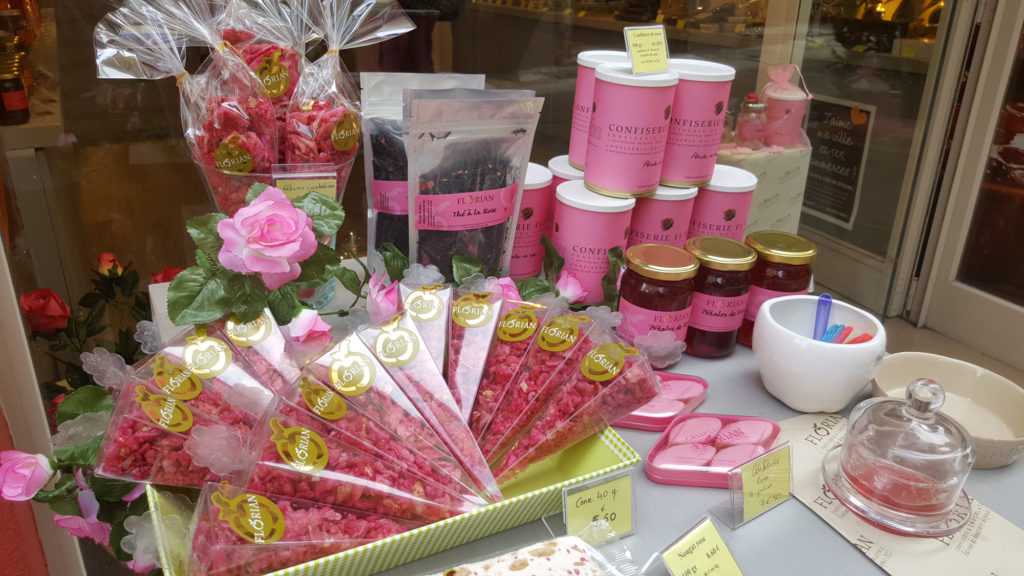
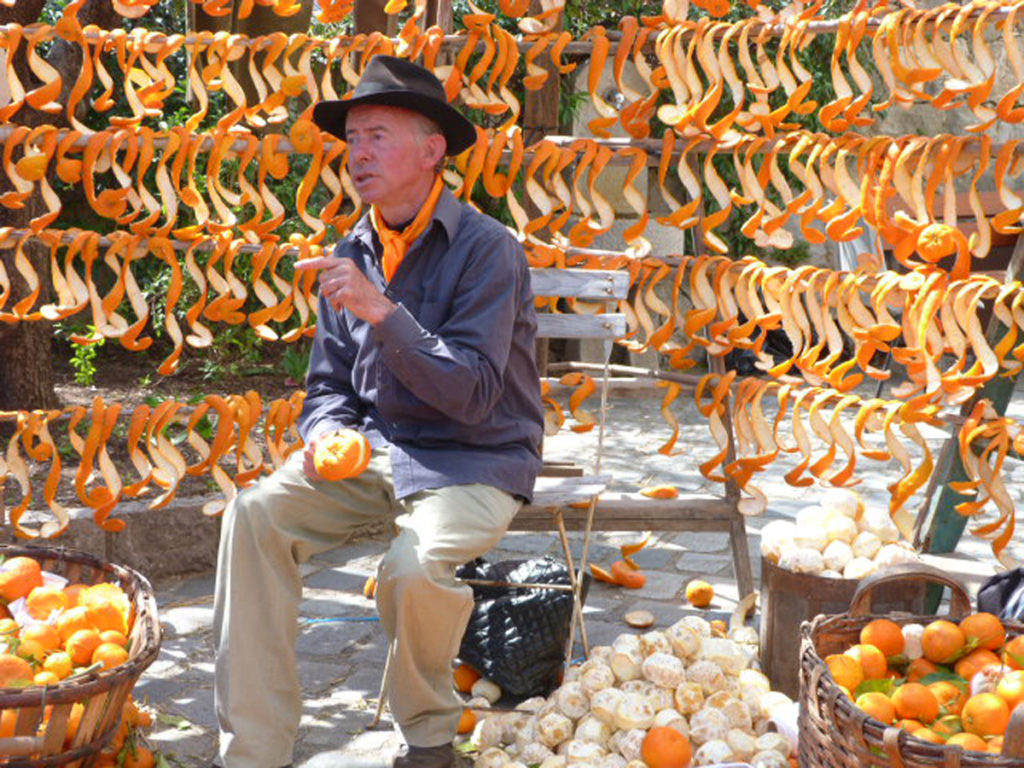
Join our Community

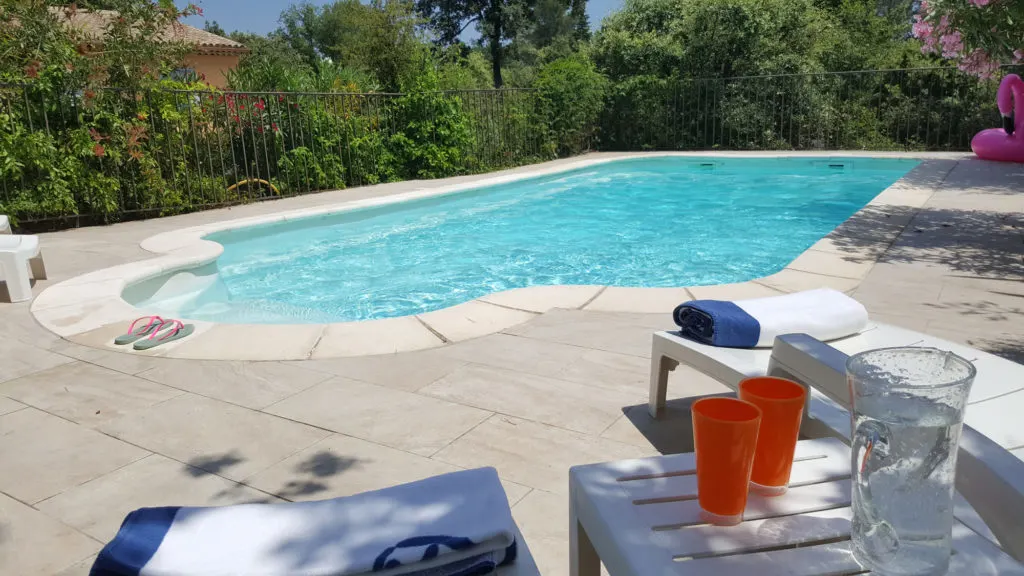
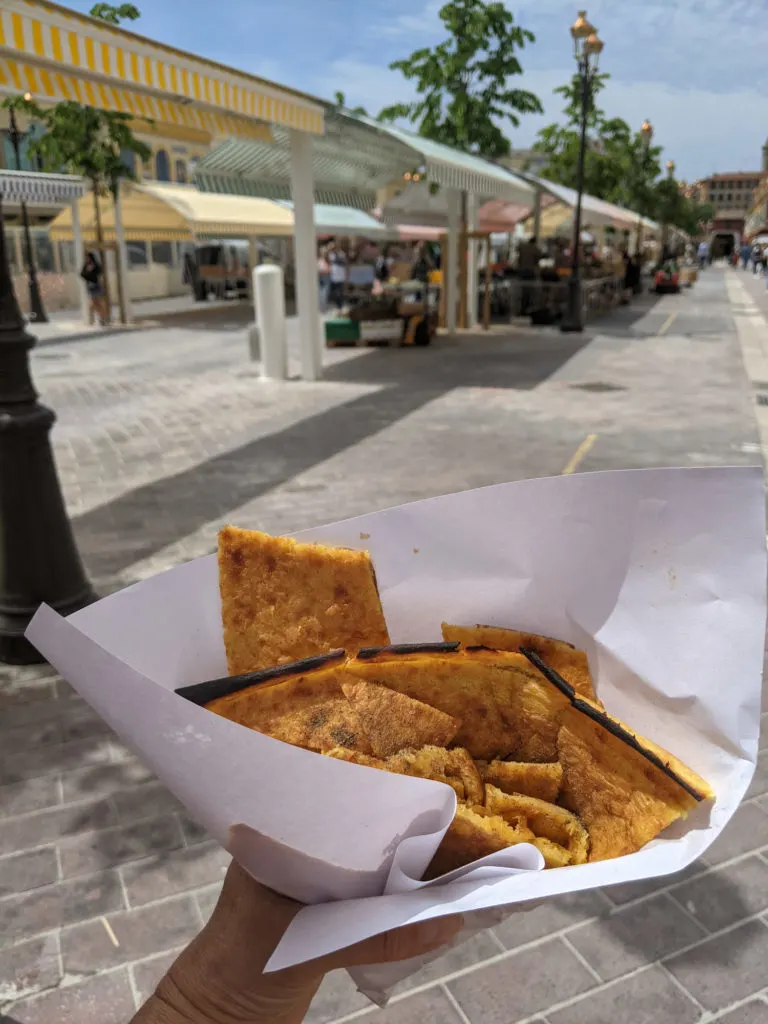
If you enjoyed French Gites...
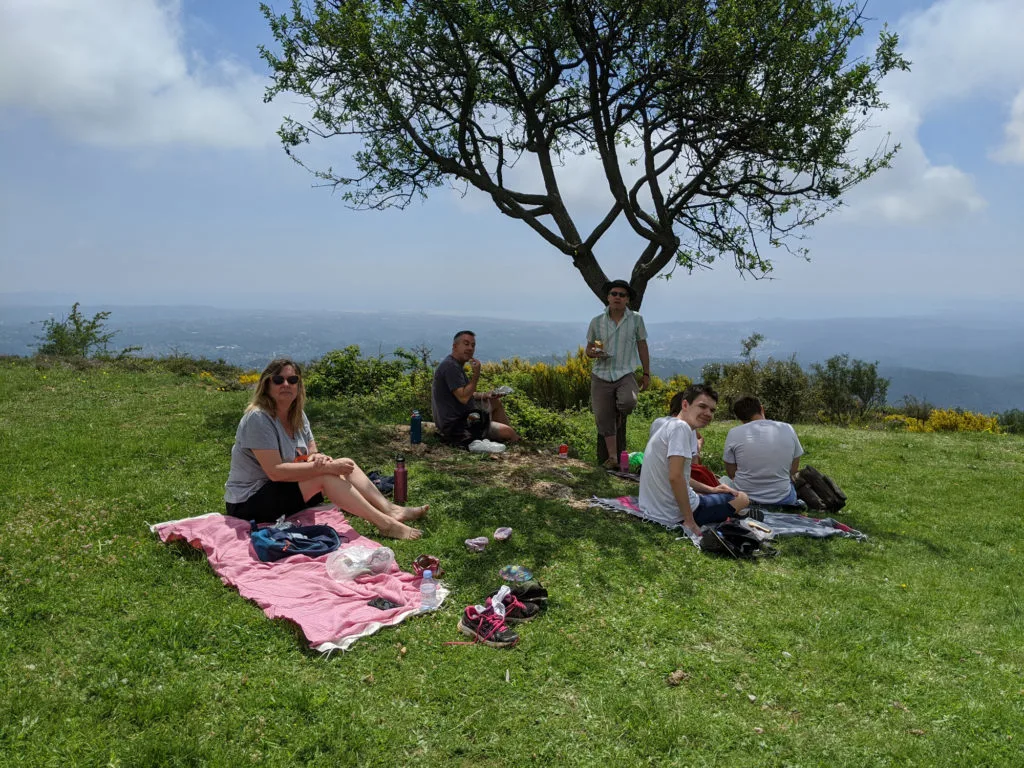
Full Transcript of Podcast
Corinne 0:00
Hi everyone, this is Corinne and we want to welcome you back to Streets and Eats. This week we’re going to be talking once again to Phoebe. We talked to her last week and just didn’t get enough of her. So we’ve got her on again, if you missed her intro, check out last week’s podcast. But this week, podcast number 30 is all about the French gite. That’s an accommodation sort of like an Airbnb or rental home that you can get in France. And they are amazing. We stayed in them many times and Phoebe happens to own one. So she’s going to talk to us all about French gites
Jim 0:35
Welcome to Streets and Eats the travel and food podcast dedicated to taking our listeners to the sights, sounds and flavors of fascinating places near and far, both on and off the beaten path. We’re Jim and Corinne Vail and we’ve been traveling internationally and domestically together for decades, visiting more than 90 countries in all 50 states in the USA, we’ll share all of the local knowledge and food expertise we’ve gathered through years of living as expats in Asia and Europe, as well as traveling with family spanning multiple generations around the world. Join us each week for a new adventure.
Corinne 1:08
Nowadays with Airbnb, a lot more people know how to sort of get an apartment, you could always do VRBO or, you know, HomeAway is one of them. And then in France, there is the whole…and I don’t remember the website, but this gite website that we used to check all the time, which I loved. But but can you explain what a gite is?
Phoebe 1:33
Sure. I mean, in a nutshell, there are different types of gites, but in general, it refers to the self-catering vacation rental or you know, cottage or apartment, just like you say just like an Airbnb, really. But there are different types because there are something called the gite etap, which is a sort of, it’s usually a big type of gite almost like a dormitory.
Corinne 2:00
Kind of like a hostel?
Phoebe 2:03
Yeah, more like a hostel. “Etap” means a stage. So it’s almost like on a stage of a journey. So you might find it, you know, something like the equivalent of the Camino might have a gite etap. So I was listening to your recent podcast about the people who went from hut to hut in the Dolomites. Those huts, well they were refugios, they’re not gite etap, but gite etap is a little bit more like that sort of thing. Anyway, that’s not what I am, then.
It used to mean a quite a basic holiday, vacation rental, self catering, some gites will have the option to have a meal provided. But in France, I’m sure you can guess it is very bureaucratic. So if you provide a meal, you’re probably not a gite, you’re probably actually a chambre d’hôte, or something else. But most gites, like I say, are just a holiday apartment or holiday cottage. And there is a category of gîte de charme, which means a charming gite. Those are the ones that have a bit more character. It’s not necessarily an exact category, but I would say that my place is gîte de charme, we don’t just offer the basics.
We know we’re far from luxury. I’ve never used the word luxury in my marketing, because that’s not what I’m about. But it’s a comfortable and cozy and you know, really nice homely place to stay. We have a pool. And we have a big garden. And we live on site. We built our own house and we built it such that the gite is on site. We’re on a hill and our bit is on the top level and the gite’s on the garden level, but we also have a garden, it’s just the way the layout is. And so we’re fully independent in that there’s no communicating doors or anything. We could never just walk in on the people staying here, but we are on the same property. And so therefore we’re around to advise, help, and, you know, socialize with if people want. And I think this is the beauty of it.
Obviously there are plenty of gites without the hosts living on site. But in our case, it’s very independent and yet we’re here. I’ve been doing this 12 years, and you get a good feeling of if people are keen to chat and pick your brain. And obviously sometimes this has come up in the booking process anyway, all the emails to enforce that you’re going to have a good rapport and you’re going to definitely be chatting and socializing together. And you know, we’ve had many people here who we end up having, you know, wonderful, boozy evenings together. But then, you know, you also get lots of people who that’s not why they’re coming. They’re coming, because it’s in a good location for them, and it’s a good price, etc, etc. And, you know, we’re like bon jour, bon jour when we see them and you know that’s it.
But the pandemic has somewhat changed all that. I mean, obviously, we get way less international guests now. But we’ve had people from literally all over the world, we’ve had Azerbaijanis, we’ve had Ukrainians, we’ve had, obviously, tons of Americans and Canadians, and we’ve had Brazilians and Icelanders, and Singaporeans and Koreans and everything in between. Obviously, in the last year it’s been much more French, a few Belgians, few Dutch, and they are just coming sort of for their, either to see family in the area, or for the sort of summer holiday to get some sun and lay by the pool. Not all of them, but much, they’re much more just booking our place, because it’s a convenient place. And not because of the story behind it. And we used to get many more, you know, one of our first ever lot of guests, when we first opened was a couple from Patagonia who didn’t speak any English, and we didn’t speak any Spanish. And, you know, lots of gestures.
And amazingly enough, this is how Google Translate has come on, you know, when we started only 12 years ago, you couldn’t just use Google Translate to help you. I mean, it just didn’t exist, you know? We have notions of Spanish, because it’s close enough to French so it wasn’t like trying to communicate with Koreans or something. But, they came and we still had lovely evenings together. And the woman, she was really tired, and she slept for the first two or three days, and the husband was a bit lost. So he helped us plant a hedge, you know, and we had, we had this lovely, lovely time with them. It turned out, she was an opera singer, and he was a real estate agent. And he just couldn’t get over the size of properties here, he just thought they were so tiny, because he was selling properties of the size of Belgium and things. So we had this sort of lovely, lovely experience, and we got to meet them, they, you know, heard our stories. Since the pandemic we haven’t had, we haven’t really had any of that. Also, you know, we’re supposed to not really socialize, social distancing, you know.
The thing I love about it, hosting, and I love staying in other places, is the source of contact, and the fact that, you know, we’ve lived here for 14 years, had the gite for 12. So we can advise on so many things. And, you know, show people our favorite hidden gems, where to get away from the crowds, because, of course, the French Riviera is famously wonderful, but it’s incredibly crowded at times, because it’s so famous. It’s such an amazing place. But we know where to go to beaches, even in mid August, where there’s no one and we can advise people where to go to the river where there’s no one and, you know, and so you get that sort of contact. Personally we haven’t been able to travel nearly as much as I used to, you know, times of life, young children, work, jobs and all that. So I bring the world to me. And you know, like I say, we’ve had guests from Korea and guests from Azerbaijan. Which was one of honestly the most, for me, the most unusual places because, you know, we all know that Koreans travel and we know that Canadian, Australian and New Zealand, they travel but you don’t really…
Corinne 8:58
But Azerbaijani’s?
Jim 9:00
You don’t really meet many of them.
Phoebe 9:03
No, you don’t. We’re here. We can advise. We can socialize. We can chat, we can help out with bookings, and reservations and all that sort of thing. But also we can completely leave people alone to do their own thing.
Corinne 9:17
How many languages do you speak?
Phoebe 9:19
Oh, God. I should speak loads. I honestly would only say I can speak two: French and English. I’ve been learning Italian for the last year and I’ve been doing it on Duolingo and I can say some pretty silly things in Italian from Duolingo like “are my shoes electric.” Are my shoes electric?
Jim 9:41
That’s helpful.
Phoebe 9:42
Yeah, it’s really helpful.
Corinne 9:44
Wow.
Phoebe 9:45
What I’ve always said is I can count to ten in, I think, ten languages.
Corinne 9:50
You are so like me! That was my thing, I can count to ten in twenty languages.
Jim 9:57
I can count to ten. I can order a beer.
Phoebe 9:59
Exactly, all that sort of thing. And I’ve learned about five languages. There was a time when I could speak enough Vietnamese to get by in daily life. I mean, it’s so hard. I’ve never said I was any good at it. But you know, I could, I could chat to people on a basic level, I could certainly go shopping and I could talk to my colleagues and things. But I’ve forgotten the majority of that. I’ve learned Russian. And I’ve learnt, I had a tiny bit of Icelandic back in the day. But, you know, Icelanders speak amazing English. You know, a few words in Czech…
Corinne 10:34
And that does make a difference. Well we lived near Czech for year and we don’t speak Czech.
Phoebe 10:43
And so I think having a little notion of some Slavic languages, I can, pull out… when we’re in Montenegro, you can get a little notion of a few things because I have studied a bit of Russian. And there’s some similarities, you know, but, no, I would have to basically say I’m not a linguist, it’s as simple as that. I ought to speak many more languages.
Corinne 11:09
I can’t tell you how much I totally understand everything you said because I would tell people I speak one language and that is English. I can get by in France, I’m sure everybody laughs at me. I’m sure it’s baby French but I can get by. I can order. I can buy things. I can get into, you know, a hotel room. I can get by. I can do those things. And they let me, so I think that’s important. A lot of places if they don’t let you, you know you really are horrible. So they let me, so that’s good. And the same in Spanish. The same in Turkish. The same in Japanese. We lived in Korea. I did not do well with Korean. I don’t know why. I came from Japan and did so well in Japan. I can still speak Japanese conversationally pretty well, but Korean I never learned. But I could never have like an extended, especially academic or really business. And German, I probably speak the best. And we lived there for years and years and years. But even then, both our jobs were in English, Jim is American, I’m American. And you know…
Phoebe 12:19
That’s it. I mean, the downside of being an English speaker is that, you know, everybody always wants to practice. And, and I was an English teacher for years and years. And so yeah. And even now, obviously, I have a lot of French guests. But the vast majority of my guests are non French. Not necessarily English, but just non French and therefore we communicate in English.
It has become the language of the world. So yeah, and I certainly would never call myself a linguist but what I like to say is I won’t starve to death in at least seven different languages.
I like that.
Jim 13:05
And those seven languages will cover several different countries. so yeah.
Phoebe 13:12
Yeah, that’s a good way of looking at it. Well, I should change my I can count 10 by I should change it to that to say yeah, “I can eat in probably about eight languages.”
Jim 13:26
It may not always be the best thing on the menu but like I said, at least I won’t starve to death.
Corinne 13:31
Yeah, well, the key is just to ask them. What do you suggest? I try never to order without just asking “what would you tell me to eat?” Sometimes I can’t go with a recommendation but almost always I will. Um, what was the other question I had? Oh, so this has happened to us. We’ve been in many gites. We’ve been in many home-aways, Airbnb’s, you name it, any kind of rental, hotels, everything but one of our stumbling problems is always trying to engage the host. Now you’re lucky because I mean, if I had you for a host, which we tried, but we never actually did it,. We will sometime Phoebe I promise. Anyway. You speak English so of course I think it’s easier I would feel more comfortable just chatting you up. But like one time we were in umm, what was that town in France, Jim… Gosh, anyway, some little tiny dorf in France. And it was a really cool little place. And we rented a gite there. And the host wasn’t on location but there was like a manager, the person who took care of the gite. And they lived downstairs and we were going to be upstairs.
Jim 13:45
Oh, this was in Montady?
Corinne 14:07
Montady. Montady. Do you know where that is?
Phoebe 14:55
No.
Jim 14:56
It’s a small town. It’s in the south.
Corinne 14:59
It was funny because we kind of tried to chat her up a little bit, but she seemed standoffish, maybe I don’t know, she didn’t seem interested. Let’s just put it that way. And we’re like, “Okay, well, sometimes they are, sometimes they’re not.” So I thought I gave it a little go. Well, then we go out to dinner, and we come back. And she and her husband are sitting out in front smoking and drinking some wine. And they’re like, “Come join us.” I’m like, oh, like total shock, because I thought there was no way they wanted to engage with us. Anyway, so I guess my question is, how do you know someone is willing to have a little conversation and like, get to know you or whatever?
Phoebe 15:44
Like I said, I mean, you often get a really good feel just from the booking process. I am on Airbnb, of course, I mean, you know, you have to be, and I do accept instant bookings. So of course, I sometimes get people who just think there’s a booking, but even so, in general, even those people will then send me a message. And I will certainly ask them, you know, like, kind of about who all they’re coming with. “Oh it’s me and my wife and my toddler,” or, you know, “my teenage kids” or… So again, and you can almost straightaway get a feeling of, if they kind of want to engage with you almost from that. It’s not always as cut and dry as that. But, you know, I get some people, I mean, I got a booking inquiry just today that it’s like, “I’ve just subscribed to your blog, I love it. I’ve been following and reading all this stuff about the area, it’s amazing, I can’t wait to stay, I can’t wait to meet you.” That sort of person is clearly going to want to chat. But then the other person who is just literally doing a booking, you know, “two people, five nights, du, du, du…” And then when you meet them, you can tell as well. Well, you just can.
Corinne 17:02
Now you gave me an idea to be more chatty on the messages.
Phoebe 17:07
It’s not as black and white as that, because it’s not necessarily if somebody just sends you a really, you know, perfunctory booking, it doesn’t necessarily mean that they won’t want to, of course. But once people arrive, you know, you can sort of a tell from fairly early on, some people warm up, others don’t. Just sort of get that feeling that, that they kind of, they’ve come for their holiday, and they want to be alone, and they’re not interested. Or, I mean, some people instantly when you meet them, you know, “Oh, hi, Oh, I hear a little accent. So where are you from?” And assuming, you know, we’re speaking in French because I do have an English accent when I speak French, you know, I’ll never lose it. And so we get chatting, and then it goes from there. It just, it’s very rare that I misjudge it. You know, it’s really rare that I think “oh they seem nice and chatty. And they obviously want to have a good, you know, some interaction with me” and they don’t or vice versa. So there’s just a feeling.
Corinne 18:12
I just think that it’s so much richer whenever you do get to have some conversation with the host.
Phoebe 18:21
I know that occasionally. I get some people I think that they think because I’m English, that I’m not a local. And you know, because there are so so many expat Brits here who aren’t integrated into the, into the community and don’t speak French. And, you know, they’re not locals. I mean, well they are, in a sense, but I mean, that’s not me, you know. I’m married to a Frenchman and I do speak French and my kids are totally bilingual, bicultural, have spent their whole lives in France. So they would consider themselves more French than English. In the end. Well, and Australian, don’t forget that. We also have Australia thrown into the mix. But um, so I think, you know, some people think, “Oh, well, she’s not local. So they’re not going to get those insider tips and that interesting stuff for me.”
Some people, it’s when they hear that I have a French husband and that we’ve been here for that long, you know, because I’ve actually been in France for over 20 years. It’s not just, you know, down here for 14, then they will “Oh, okay, oh, you speak French? Oh, yeah.” They realize and then they warm up. You occasionally of course get the person who thinks “Oh, how wonderful that you’re not French.” I mean, no, you know, that’s a bit dodgy. I think sometimes the reputation of too many English in the south of France goes against me because they just assume I’m one of those. But I, you know, I am totally, I think probably know more about this area than the vast majority of people because I am always exploring and always, you know, out and about and looking for things to do and to write, because of my blog. Well my blog is slightly on the back burner at the moment. I haven’t written much, you know, but it has been going for 12… Yeah, I’ve been writing for nearly 10 years, it’ll be 10 years in April. Yeah. So my goodness…
Corinne 20:19
It’s been a while because I think I’ve been following you from the beginning.
Phoebe 20:21
Exactly. You know, there’s a lot of information out there. And, you know, and I love, you know, going on the trips to explore, to find places for people and, you know, once people realize that I’m not just some sort of ex-pat-y non involved, Owner, then there’s often a warmth that comes through, and they’d be more likely to want to, to have a two way exchange and find a bit out about me, and, and therefore I get to chat to them. And, you know, and we have more interaction, I have to say, in general, the French guests that I get, are less interested in, you know, sort of having a, an aperol evening with us, or whatever, I think mainly because they really are just here, to have their southern France holiday to get their sun. And, you know, we’re not seeing it as sort of travels as, as a cultural. I mean, you know, we have, obviously, we’ve had loads of lovely French families and couples and people stay. And of course, we had some interactions together. But in general, it’s the people who come from sort of the furthest away who want to pick our brains more. And that makes sense.
That makes sense. Yeah. Like you said, it’s more of a travel opportunity for them. And now, trying to understand a new area, a new culture. That’s that makes sense. Oh, yeah. So you have been able to turn your love for travel into, like you said, bringing the world to you in this. Yeah. So that’s really nice.
Corinne 22:01
Which I always talked about, to be honest, because we lived as you know, outside of the United States, basically, for our entire marriage until last June, when we we came back because of our grandson, and retired from our jobs. And so I can’t tell you how much I miss it. Although I’m not ready to jump into like a b&b or anything yet, because I still am hoping that we can go out and travel somewhere, but and then that would tie you down, I think, I don’t know. Does it tie you down? Well?
Phoebe 22:36
I mean, I thought it would, I thought it would tie me down more. And I know a lot of people at the beginning said, “Oh, well, how will you ever be able to go away?” And I guess at the beginning of it you know, I was much more tied to here. But now having run this place for 12 years, I do absolutely know how I can also go away myself. And, you know, I have a core group of people that I can delegate to and rely on, if I’m away, I’m completely obsessive about it myself, I’m here and would never let someone else run it if I’m actually around. But if I am away, I do have a few people that I can, you know, I do trust to do the cleaning and the handover for changeovers and things, but also what we do, and we have done, not since the very beginning, but probably now for maybe even 10 years, because we rent out our whole house for the summer, including our bit. So it becomes a place that can sleep ten instead of four. And that’s when we go into our bigger trips.
Corinne 23:41
And do you do that for the whole summer? Do you rent?
Phoebe 23:44
Well we can’t, we can we never rent it out for the whole summer because basically, my husband has a job that he can’t go away for that long. And, you know, while we rent a local place, a small local place, we’ve even stayed in campsites and things while he’s still working before, if we if, for instance, we rent out the house for five weeks, he can’t go away. For those five, the longest he’s ever been able to go away for a one time was three. And so we’d stay two weeks, locally in some, you know, small, cheap place, or sometimes house sit friends places or whatever, you know, people say, Oh, we’re away, you can stay here. But that way, it does give us a bigger sort of time away. And because it’s on a different financial level, you know, I mean, renting out a house for 10 in the south of France means that I can afford to pay a manager for that.
And we do kind of almost switch off. Not quite. We do still answer the phone, you know, I mean, and we did have I remember some pretty complicated guests at the beginning times when there was a heatwave and we don’t have air conditioning here which I know shocks Americans But it’s quite normal, I’m sure, you know, quite normal in Europe not to have air conditioners. And these people would come and they, they, they knew what the temperature was they even talked about it in their booking process. And she even said she was brought up in this area. Anyway, they found it was too hot. So they rang us up, even though they had the local manager, we were in Bosnia, and they, it’s too hot, we want air conditioning, we, of course, how the beep do you think we can put air conditioning in for you by tomorrow, you know, even if, and we’re also like, you know, it’s our own house, we don’t want to air conditioning. We’re not going to anyway.
Occasionally, we get annoying people like that. Really shouldn’t talk about the annoying guests. But occasionally we get like that, which, in general, when it’s our house, we have this manager to deal with that, so that we can switch off. But these people didn’t like dealing with a manager and they wanted to deal directly with us, that’s very rare. So that’s when we can really switch off and go away. Other times we do it out of season. You know, like right now. I mean, it’s particularly quiet, because in France, you know, COVID cases have gone mad and everywhere, but in general now is the quietest time. So we might, you know, take a trip. But we do still have a school aged kid. So of course, we’re, we you know, we have two school holidays. But we’ve got for instance, we’ve got school holidays coming up in three weeks time. And it’s pretty quiet time here. And even if we had a booking, it would be a time when I feel that we might be able to go away with the booking here. You know, leaving it in the hands of other people, you can go away. But I yeah, I do love my own business, and I’m very obsessive about it being exactly perfect. Oh, I leave very, very, very detailed instructions.
Jim 26:58
Yeah, yeah. Have you ever thought of expanding? Like maybe getting another one or two?
Phoebe 27:04
Yes, sometimes, but no. Part of the no is because I am such a control freak when it comes to it, that I don’t think I would have the same relationship with another if I had a place, you know, in on Antibbe or in Cannes or Nice or something. So I was completely on hand. It would be such a different kind of a business venture. Yeah, that I’m not sure that I really want to do that. Of course, I’ve had moments when I think yeah, you know, I should do it again. And then I think, Oh, God, this area’s so saturated, it really is. And I’ve worked, you know, very hard to have my own little niche to get a good you know, we’re we’re sort of 80% full every year at 85%, which is kind of almost, I mean, I don’t really want any more than that. Because, you know, it’s quite nice to have time for like Accenture, you know, maintenance and, and just with no one around.
So yeah, so the thought of trying to market another place to the same level in the market as it is now with Airbnb. So being so enormous. And you know, because I have a real love hate relationship with Airbnb. I mean, sure. I’ve been with it since they began. I’ve been with it since well, since this blue has been on eBay versus 2010. Which, you know, is trailblazing stuff. I mean, most people haven’t heard of it, but then. And it was such a different company, they used to come and they would give us they’d have cocktails, and they’d give us little freebies and I don’t know if you can even remember this type of logo that was blue, Airbnb written in blue, their logo was completely different before they went for that red, upside down heart thing. And I’ve got all this merchandise in that Airbnb blue because they used to care. It used to be the caring sharing community. And now they’re just you know, mega bucks business. But, you know, like I say, love hate because I, I of course use them to travel myself sometimes. I do. Always if I found a place on Airbnb, I always try and find the hosts direct if possible, which is what I always encourage people.
Corinne 29:16
So how do you do that? That’s a very good tip right there. How do you find them? Because I agree. I mean, obviously, every host I’ve ever met says please just call me direct. You’re not paying fees.
Phoebe 29:31
Well, the tricks that I try to you know, let people know to try and do is look at all the photos very carefully. Usually, a host who wants to be found direct will put some sort of hints in the photos or in the text. Like if you look through all my photos, you will see Lou Messugo written in places. Like for instance, I have a folder which a welcome folder on the table, with you know, welcome to the gite, all the information about local restaurants and markets and places like that in it. But it’s on the cover. It says www.loumessugo.com. And I have that in a photo on the Airbnb listing. I hope Airbnb isn’t listening.
Corinne 30:19
I don’t think we’re quite that big yet.
Jim 30:21
Yeah, you’re safe.
Phoebe 30:28
Yeah, like it’s a picture, it’s just a picture of the layout of, you know, the table, the welcome table. And in it, there’s that. So if you look closely, you can see my direct website address. So you can try and get it that way because, you know, the algorithm, the bots can’t pick that out. Obviously, I can’t type in my, my actual direct address. The other way I do it is because of the blog, I say, in my blurb, I say, I’ve been writing a blog called Lou Messugo all about things to do in this area. Thinking please look up my blog. And because Lou Messugo is a unique name, I made it up, it’s doesn’t you know, it does mean something, that’s another story, but there is no other Lou Messugo anywhere in the world. If you type that in, you will find me.
Now obviously, not every host is going to have such a unique name and, and so easy to find. So the other thing you can do is reverse search on Google with images, you sort of take an image from their, from their listing and try and find it elsewhere. Because most of us again, those of us who want to be found independently, directly, will have a core amount of the same photos everywhere, so that they come up, you know, you’ll find the same photos on my website as on, you know, through my Facebook page, not on Instagram, because that’s a different whole kettle of fish. But, you know, so you can find things like that, but I think the real clue is to read the text carefully and look at the photos carefully.
Okay, also, you know, if there’s any clue about you can’t usually give your surname but you know, you can so many people on social media nowadays that you can try and sort of work out something. Again, I’m lucky in that I’ve got an unusual name Phoebe. So “Phoebe gite” like, it might come up I mean, and that that might come up because of my blog. And that’s, you know, why I work so hard at it. It wouldn’t come up if somebody just has three apartments and on the website, I mean, their name isn’t going to come up but yeah, it I think you know, the main thing is really look for those clues. But there are plenty of people who don’t want to deal direct you know, they just like the ease of their place being on Airbnb.
Corinne 32:57
But you can always tell those people though, and there’s a lot of them in the US. I know that for a fact where they have the the entry list keypad, you know, they just send you the code.
Jim 33:08
And yeah, you never see them.
Corinne 33:14
In fact, we were in one place here in Washington state not long after we moved here and even though it’s full on pandemic and everybody was in lockdown we just went to this Airbnb just to get away. Just to breathe different air for a few days. And so we did this and we saw this couple with their dogs and we knew the people had dogs because of the way their AirBnB was written and they were just staring at the house and you could just tell that they were either the owners or managers or they were obviously involved in it somehow because they were quite interested. But in the States especially I think they really love that anonymity you know, they don’t want to know the renters. It’s sad.
Jim 34:05
So what are the specialties of your region? Food and wine.
Phoebe 34:12
Okay, well obviously the most famous thing that is, well, world renowned of course is that Nicoise salad. I mean, you know, it’s on menus all over the world. And that does mean salad from Nice. So that is kind of the most obvious and most easiest thing to say. But probably my favorite thing is more like a street food which is called socca and it’s a chickpea pancake. It’s made on a huge open woodfire oven, a bit like a pizza oven, but it’s kind of like a dome. And it’s made on this massive copper dish, a flat copper dish, about almost a meter wide and it’s literally olive oil, chickpea flour, water and salt and pepper. And it’s kind of flickering flame chargrilled and then served thin, thin, thin like a sort of crepe. But they don’t serve it as neatly as a crepe. It’s not folded up like a crepe. It’s sort of served in more like crumbs, bits, sort of cut it up like this. But it’s very much street food, which is quite rare in France to eat while you walk around. You know, it’s very much you sit in France to eat in general, but socca is one rare thing.
There are socca restaurants and it’s really from Nice. You can get it in Antibes and you can get it in Cannes and you get it at local fetes. When the village has a fete someone will come around with a socca oven. But you won’t find it in Marseilles. You certainly won’t find it in Lyon. It’s really, really local to here and god it so delicious. Yeah, so that’s completely the most local thing. Socca. S. O. C. C. A. Really, I believe it’s similar to Farinata. In Italy, maybe I might have got that wrong. So don’t quote me on that one. Okay. But, yeah, otherwise, this area, of course, is rose wine area. The Provence wines are delicious. And we’re only about 30 minutes from the nearest vineyard. So you can go on lots of wine tasting tours in this area.
Jim 36:43
Do you have connections with any of the vineyards like I could just show up at and do tastings. Do they do that?
Phoebe 36:51
I certainly could recommend places. Yeah, so I’ve been on a few myself that I would totally recommend to tell people to go to and I also have a good connection with a tour here. They can take you to all the places so that you can drink and not worry about drive drive. And that’s a great tour too. Really, it’s really good. They either pick you up from here, from my place or there’s, you know, a central meeting point in Nice or whatever, and you can take these tours. But a new up and coming thing is, and I think it’s probably worldwide really, is craft beers. They are becoming huge here now. Yeah, more and more artisan artisanal beer. And it’s exploding here. There are so many Brasserie breweries all over the place, you know, we’ve got them in the little villages just down the road from here. And, again, I have some good connections with friends who are brewers who have a brewery and a shop that sells just about every beer, you can find here in the area and a huge world selection. So that’s something you don’t really think of in France, you know, I mean, especially not South France, where we’re so famous for our rose wine, which is, you know, unbeatable and delicious. But not everyone is a wine fan. And lots of people love their beer. So I can very much advise on the beer scene here, which is, which is growing hugely and, and fantastic. It’s lovely.
Jim 38:24
Has the beer scene evolved to include food? I know like in the UK, you can find some really outstanding gastropubs that are chef owned and that sort of thing. But that’s more I think food oriented. But it’s also in line with the pub. The pub culture.
Phoebe 38:42
I’d say not too much yet. I think that might come. I know some of the breweries do try and do kind of events and aperol and you know, and tastings and pair it with food, but in general, it isn’t. You know, in France it’s still very much I mean, like, the love of wine. Yeah, and it would be very rare to go to a restaurant here and to be and to drink beer with your food. So it’s still very much for bars, for pubs and bars, where the food isn’t such a thing. And of course for home, you know, for people having their aperol at home and things, but I can’t I mean, of course, I’m sure there are some but I don’t know, yet, a particular place where you could have a really yummy meal and have a good selection of beer. For me, you know, if you want a good selection of beer, you’re going to pub or a bar, you know where there might be some snacks but it won’t be great food. I mean, it won’t be bad food, but it won’t be the focus.
Jim 39:45
You’re still in Southern France. So yeah.
Phoebe 39:47
Yeah, the wine is still obviously very, very dominant. And obviously also what people don’t realize is the Cote de Provence and this local area has lots of red and white wine as well. It’s not all rose, but rose is well, sort of everyone thinks of the South of France. And it’s definitely, you know, I think had a really bad sort of reputation 20 years ago, so people used to think it was very sweet and you weren’t a real wine drinker, if you drank rose, but that’s just not the case anymore. You know, you get some really amazing results that are crisp, dry and you know, as complex and complicated as, as any red or white.
Corinne 40:28
But the weather in France, southern France, especially is pretty mild. I mean, you have good weather most of the year. February, I was down there when we were in Menton for the Lemon Festival, and it was freezing cold, so I’m sure you get a few cold snaps, but overall, the weather is pretty nice. Right?
Phoebe 40:48
To me it’s a great climate.
Corinne 40:51
So I always thought rose was a summer wine. But is that true in Southern France? Or is it different?
Phoebe 40:58
Yeah, there comes a stage when you let go of the rose and move into the red, somewhere around November.
Corinne 41:08
Around when the Beaujolais Nouveau comes out, right?
Phoebe 41:11
Yeah, sort of around then you start to think now, you know, it’s time to drink red. But it’s only a short season, because by about February or March, you’re starting to think oh, look, it’s definitely rose season because it’s so sunny. I mean, that’s, that’s a generalization. And I think often, still in restaurants, for example, when my husband and I go, I’m not a big white wine drinker. I love red, and he likes them all. But he might have ordered a fish and not necessarily want red wine with that. So we almost always still order rose in restaurants in this area where the selection is great. You know, we wouldn’t necessarily in northern France, in February, where the rose selection is rubbish, but down here in a restaurant, there’s always a good selection of rose. But it is still, you’re righ, it is still a summery thing. So you know, I wouldn’t sit in front of a log fire, it can be cold here, and drink a glass of rose. It’s got to be red when you’re in by a fire.
Corinne 42:18
Yeah. Okay.,
Jim 42:20
That is funny. So, the one rose story that I have, because, like you said, all these different preconceptions that we have about rose and rose drinkers, we were in Tunisia. I want to say it must have been a spring break trip.
Corinne 42:39
No, no, it was winter break, December.
Jim 42:40
December, okay, so as a winter trip, so it was winter, in Le Kef, which is right on the Algerian border. Up in the mountains. We checked into a little hotel, and we had found a place that the person at the desk had recommended for dinner. So we walked out and around the corner and up into this place and it was packed. It was hopping, but it was full of, of middle aged men. All you know mustachioed and, and sitting at all these tables. We didn’t really see much food, so we weren’t sure about that. But they were having this great time. They were all drinking rose, every single one of them.
Phoebe 43:25
Which is absolutely not the image you associate with rose.
Jim 43:29
Okay, first of all, we’re in Tunisia. Why are they drinking wine at all?
Phoebe 43:32
Yeah, absolutely true.
Jim 43:34
But they were. And then yeah, rose. So, you know, we had to do like the locals.
Phoebe 43:39
Smashing all the preconceptions.
Corinne Vail 43:42
Every single one.
Jim 43:43
And we did. Drank rose. Yeah.
Phoebe 43:46
Yeah. That’s funny.
Jim 43:48
So your gite is near Nice, obviously. Is it part of the Nice urban areas?
Phoebe 43:57
Not really, well, technically not. The Nice metropolitan area goes up to Cagnes-sur-Mer, sort of two towns away. In between that there’s Villeneuve-Loubet and then there’s us. But the thing is about the Cote d’Azur is it is very urban, on the coast, and basically towns spread into towns spread into towns on the coast. There’s no, you know, countryside between the towns, but we’re 10, 11 kilometers inland, almost directly halfway between, well, we’re half an hour to Antibes, half an hour to Cannes, and half an hour to Nice. So equal distance between all of those. And once you get up into the sort of back country where we are, there is countryside, between towns, you know, forests and things. So we’re not in the nice metropolitan area, but you know, it’s really not far and there’s a direct bus from you know, 500 meters or 200 meters down the road.
There’s a direct bus into Nice for instance, when we go out for dinner at night will often go to Nice or Antibes or Cannes you know that equal distance. And this is one of the beauties of our location, almost every single review that we’ve ever got, you know, on all the different platforms, TripAdvisor, Airbnb, nearly everyone says “so well located” because we’re this sort of equal distance and then half an hour in the other direction you can be in the snow in the mountains, I mean, literally, you know, skiing, and anything in between. So we’ve kind of got the best of both worlds. We’re very close to France’s fifth city. That’s Nice. You know, it’s a proper big, dynamic, exciting university city, with culture and museums and festivals, and you know, and forest and snow and adventure sports and all the little medieval villages all around. So very, very well placed only 15 minutes to the beach, but being 15 minutes away we’re not in the mega crowds in July and August, you know, our little town is quite quiet. Nowhere is quiet on theCote d’Azure, but it’s not crowded. Yeah, it’s very, very conveniently placed to visit this area.
Corinne 46:22
So July and August is unbearably hot my opinion. But when is probably the best times to visit, is it like spring and the fall? Would you say?
Phoebe 46:33
Yeah, like, like most places out of season, spring, fall are lovely. But not, you know, shouldn’t forget winter here to be honest, because actually, you know, Nice got UNESCO World Heritage status in July last year. And we got it for being a winter resort. This is what people forget it. The English would come to winter, they use that verb “to winter”, they would come to winter on the coast. Because the climate in the winter is so mild. And it’s not just so mild, because cold, you know, you can deal with cold. It’s so sunny. You know, this is what’s so lovely. I get all my friends from the north, people in Paris, and my family in the UK and friends all over the world are just like, I’m so sick of the gray by this stage of winter, right? We don’t have gray. I mean, I, I feel embarrassed when I put pictures on Instagram, and you know, my family WhatsApp groups that say, you know, look at this blue sky again, this winter is stunning. It really is. And you said you came in February and had bad weather, but that is properly rare. In general. It was just gorgeous.
Jim 47:46
It was cold, but it was sunny.
Phoebe 47:48
Yeah, you see it was sunny. Yeah. And this, it’s the sun that just gives you this kind of, you know, you don’t get that kind of seasonal affective disorder. You know, you’re not sort of blue inside, because there’s always blue skies. And so I would say, honestly, any time of year is great. Avoid July and August. If you don’t have to come then if you’re not stuck to school children times. Sure. But you know, if you still have, if you have kids in the school system, and that’s the only time you can come. There are ways of, you know, having fun here. There really are great things. We can advise all these places. But yes, don’t underestimate the heat here. It really does get properly hot, you know, in the high 30s. Often.
Corinne 48:37
And like you said, most places don’t have air conditioning.
Phoebe 48:40
Yeah, exactly. Which, you know, we’re not. And we make it very clear in our, you know, in all our listings that we’re not because it can be, it’s obviously a dealmaker for some people. But it’s, yeah, it’s all sort of part of our environmental side of things, as well as just we, you know, we find other ways to keep cool.
Corinne 49:02
But do you have shutters for your windows?
Phoebe 49:06
Shutters? To open sort of like this, they do this?
Corinne 49:11
We learned how… So we were in the south of France the last time we learned that it’s all about the way you work your shutters in the morning. Yeah, work the shutters in the evening to get the best breezes.
Phoebe 49:25
That’s it and that’s how we manage. It is an art and some people can’t be bothered. It’s a faff to them. Whereas I love it. I love opening the shutters in the morning. Oh, look at that another gorgeous day. And I love closing them in the evening. You know, it’s for me, but I know some people find it a whole faff and can’t be bothered, but I think it’s part of the charm. And, you know, I like that. But yeah, to get back to your question about the best time of year, I think October’s one of my absolute favorite months here. It’s really gorgeous. The sea is still warm enough to swim in and the crowds are completely gone and the evenings are cool enough to you know, want to maybe snuggle. But the days are still absolutely gorgeous and you get a similar sort of thing in March. It is often really lovely. April can have a bit more rain. May can be mixed but March and June can be great. June’s already starting to be more crowded, busy. But March, April, May are lovely. There can be more rain but the thing is the sea hasn’t warmed up yet. So this is why I prefer autumn. The sea is still warm. On the other hand, if you’re not interested in swimming in the sea, spring is gorgeous for all the flowers, you know, spring flowers and yeah, that kind of thing. So it depends on your your interests if you’re not into the beach.
Corinne 50:54
We will probably go in spring because we’re not gonna go swimming.
Phoebe 50:59
You know, spring is beautiful. It’s fresh. Everything’s starting again as spring is anywhere in the world. So it’s yeah, it it’s lovely, and less crowded. There’s a thing you know, the the Cannes film festival happens every year in May. And there’s a tradition down here saying that it always is guaranteed bad weather during the Cannes Film Festival when all the stars are in their little dresses and they have to go up the red carpet and freezing because it’s tradition, but it’s really bad weather in May. I don’t know why. Obviously, it isn’t for the whole two weeks of the festival. It does seem to be a little blip in the metrological calendar. But there’s always some stormy weather in May.
Corinne 51:47
Well you bring up festivals, what other festivals would you recommend are going on different times of the year? Like I said we went to the Lemon Festival which I thought was amazing.
Phoebe 51:58
Yeah, I love the Lemon Festival. It’s so unique. It’s so different. It’s so colorful and usually such a lovely weather. And at the same time Nice Carnival is on and that’s great fun too. The sort of unique side of the Nice Carnival is it has something called the flower battles. I don’t know if you saw that in the Menton one as well. Starting about now the Mimosa is all coming out. We have vast Mimosa forest. You know, like the biggest in Europe, just forests and forest of mimosa. And so these flower battles are basically the floats going through the town all covered in flowers and they throw them out to the to the spectators to grow. And so you come home with armfuls of flowers. I am not quite sure of the environmental side of it. But I think the vast majority has been grown specifically for the festivals. But if you put that aside and just get into the spirit of it, it’s such fun, and it’s so colorful and so pretty with all these flowers.
So those are the winter ones then what I really like is all the little village fair festivals. The villages around here, most of them are known for something. So like there’s a village up the road which is famous for its growing of bitter oranges. And they have a bitter orange festival around Easter every year. And the whole village just is decked out in orange and everything’s about this orange. And then the neighboring village is all about violets, they grow violets, and they’re famous for their violets, and they have a violet festival. All these little festivals are just so kind of unique and so local and so typical and so culturally important to these villages. And that sort of thing I do have on my blog.
Corinne 53:44
I agree, so important, and that’s how I decide where I’m going sometimes is what festival might be in town.
Phoebe 53:54
Well, I have a category of annual local annual events. And so you know, you can go into that category. And you can sort of see which festivals there are in October, which is you know, as I said a month that I love, there’s the festivals called transhumance when they bring the animals down from the high mountains. What people do forget about the Cote d’Azure is that we have mountains, you know, real mountains. The department is called the Alpes-Maritimes. So there’s a clue there, the Alps. We have Alps, you know, with 2000, 3000 meter peaks within an hour, an hour and a half of Nice. So they you know, in the end of the autumn, they bring all the sheep and the cows down from the high pastures to the villages. And there’s lots of festivals that go on around that. And those are just fantastic because they’re so rural and so whole, you know, seeped in history.
Corinne 54:48
We’ve done that all over but not in France and now we need to get to France.
Jim 54:54
That’s right. No.
Phoebe 54:59
Yeah, otherwise, you know, there are lots of other bigger festivals, particularly music festivals in the summer. Varying categories, you know, I mean world music or techno or classical or whatever. Again, I’ve written about all those different festivals, lots of these things, of course, haven’t happened in the last few years. But hopefully, there’ll be more this year. Because for instance, the Jazz à Juan, Jazz Festival in Juan les Pins is, well, it celebrated its 50th anniversary before the COVID hit. So I guess it’s probably about 52 years old now. And it attracts all the big names in jazz from all over the world. You know, I mean, it has absolutely every jazz player you can ever think of that has played there. And it’s, it’s in July, and Nice has a jazz festival as well, you know, they’re, they’re really lovely, because you are outside, under, you know, massive parasol pines on the beach. And, you know, with mega names in the music industry,
Corinne 56:04
Alright, well, we really have kept you much longer than I expected to keep you. unless there is anything else you can think of, either about the gite or funny story or whatever. I mean, I guess we’ll start signing off then.
Phoebe 56:22
Well, you know, I could go on forever. And I do talk a lot. So I probably should shut up. I do have one, sort of tiny aside and a bit of a plug. My dad wrote his autobiography last year. And he published it. So there’s obviously a lot of my, I mean, my dad, a lot of it is my life too. And you get the background of where this love of travel came from. Because I’ve never met a more traveled person than my dad, who writes very, very well as well. So I’m always happy to you know, tout his book a bit, it’s called “Lucky Dip”. “Lucky Dip” by Richard Thomas. He was a diplomat, and he considered that he had a lucky, you know, a lucky life and, and that what he got out of…I don’t know is a lucky dip in America is that same thing as what kids put their hand in to pull something out?
Jim 57:23
No, we don’t have that.
Phoebe 57:24
It’s English, it’s like a kids game and you pull, put your hand into the barrel or something and you pull out a present, you know, a gift. A surprise. And therefore, it’s sort of a bit of a play on words on that, because he figures he not only was a lucky diplomat, but he won, you know, absolute big prize winning out of life status. Yeah.
Corinne 57:51
I, I agree with that. Because with our job a, which is very similar, it’s not a diplomatic job, but we had, but when people would be brand new, I told them, I said, You just won the golden ticket. This is the life and yeah, it really is. So I totally understand what you’re talking about.
Phoebe 58:07
And so yeah, he’s a great writer, anyway, but his, his life is just amazing. So, like I said, it’s all about travel. I mean, he went to Bhutan several times in the 70s. He’s, you know, been absolutely all over Africa. He’s just, it’s in my blood. I mean, not to, not to forget my mom as well. And my mom is Australian, and she left Australia went to, to Ghana, and her first ever job abroad. Met my bloody English dad never went back.
Corinne 58:44
Isn’t that amazing?
Phoebe 58:45
And, you know, had this amazing life. What you can’t even begin to think nowadays, of course, is that she didn’t go back to Australia for 10 years. I mean, it’s just impossible to imagine that now isn’t that like, because relatively the flights were so expensive, then you know.
Corinne 59:05
Well, I know, because we lived this too. There was no social media. Every phone call was expensive. Um, even snail mail as we like to call it now. You know, you were you basically wanting to use air postage, you know, the real thin paper and everything because it was so expensive.
Phoebe 59:24
Yes, air grams, you know, the fold the three times and licked and…
Corinne 59:29
Exactly, people can’t imagine.
Phoebe 59:32
Yeah, no. And so that you know, that’s that’s my background. I come from these two amazing travelers who just, yeah, so this is his book,
Corinne 59:42
Lucky Dip. Okay, well, I definitely will put that in the show notes. I love it.
Phoebe 59:51
But yeah, and my gite is open you know whenever anyone can come.
Corinne 1:00:00
When ever we can get there I swear. All right, Phoebe. Well, I love talking to you. I hope that we can get you over here to Washington. Don’t forget us, please. Washington State.
Phoebe 1:00:15
Absolutely love to but oh my god is it’s seems like a pipe dream at the moment. Thank you.
Corinne 1:00:23
Well you take care and enjoy your Sunday evening what’s left of it.
Phoebe 1:00:28
Saturday day, okay.
Jim 1:00:34
All right. Thanks for listening to this episode of Streets and Eats. If you liked what you heard, please show us some love. Hit the like button and leave us a review. Maybe even subscribe so you don’t miss any future podcasts. Also, we’d love it if you joined us on our Facebook private group, Streets and Eats, where we just have an ongoing conversation about all things travel. Ciao for now.
Podcaster Bios for Jim and Corinne: Jim and Corinne are a married couple who love everything travel. Having met and married in Germany, they’ve never stopped. Along the way, they have raised two kids, visited over 90 countries (including every country in Europe), and have plenty of stories and travel tips to share. Read more about them on our About page.

